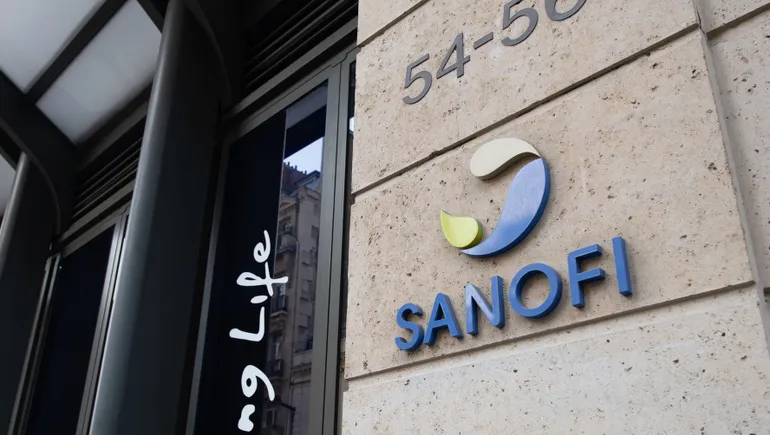Dive Brief:
Sanofi is suing the Biden administration in a bid to push through a controversial policy changing how the drugmaker pays hospitals discounts for medications in a federal drug savings program.
Sanofi filed a complaint Monday in a D.C. district court days after regulators threatened the manufacturer’s invaluable contract with Medicare and Medicaid over its plan to pay hospitals rebates instead of upfront discounts on eligible drugs in the program, called 340B.
The lawsuit, which mirrors litigation filed by drugmakers Johnson & Johnson and Eli Lilly earlier this fall over their own 340B rebate plans, wants a judge to find the credit model legal and stop the government from punishing Sanofi for implementing it.
Dive Insight:
The 340B program was created more than three decades ago in order to give hospitals serving needy patients access to affordable medications. It requires pharmaceutical manufacturers participating in federal healthcare programs to give such providers discounts on drugs.
Those discounts are steep — generally 20% to 50% off list prices — cutting into drugmakers’ profits, especially as 340B has grown significantly in recent years, both in how many providers are eligible to participate and in the volume of purchased drugs.
Drugmakers say they support the intent of 340B, but cite concerns about growing fraud and abuse in moving to shrink the program, including by restricting the types of pharmacies where hospitals can dispense 340B drugs.
Drugmakers’ latest tactic is reforming how discounts are paid entirely.
Earlier this year, J&J, Eli Lilly and Sanofi all tried to tweak how they divvy out 340B savings, by paying cash rebates to hospitals after the providers prove their drug purchases are eligible for 340B. Currently, drugmakers are required to sell eligible drugs at the lower 340B price at the point of sale.
The Health Resources and Services Administration, the HHS subagency that oversees 340B, warned all three to pull back their policies or face hefty fines — or termination of their pharmaceutical pricing agreement with the government.
It’s a significant threat: Nullification of that contract means the drugmakers’ medications would be cut out of Medicaid and Medicare coverage, losing them access to a patient pool of almost 150 million individuals. The programs jointly account for almost half of the U.S.’ annual spending on prescription drugs, according to Sanofi.
J&J, Eli Lilly and now Sanofi all paused the rollout of their rebate programs, but have taken to the courts to overturn the government’s opposition.
Sanofi’s plan would require covered entities to disclose data to Sanofi backing up a medication’s eligibility for 340B discounts. Once verified, those facilities would then receive a credit from Sanofi for the difference between the lower 340B price and the wholesale acquisition cost of the drug. Providers should get that payment before they have to pay their wholesaler, preventing them from having to float the higher cost of a medication, according to Sanofi.
The key legal question at play is whether Section 340B of the Public Health Service Act, which created the program, requires drugmakers to lower the price of a drug through an upfront discount or a subsequent credit or rebate. HRSA’s guidance maintains the law supports an initial reduction in purchase price, while drugmakers argue there’s nothing in the statute requiring that.
“Sanofi’s planned Credit Model is fully consistent with Section 340B, and HRSA’s contrary position is unlawful,” Sanofi’s complaint reads. “Nothing in Section 340B prohibits Sanofi from implementing its Credit Model.”
Sanofi’s lawsuit cites a recent court victory for the drugmaker in another 340B case over hospitals’ use of contract pharmacies to distribute discounted drugs. In May, a D.C. appeals court agreed that the law doesn’t prohibit drugmakers from imposing conditions on how 340B drugs are distributed to covered entities.
Federal courts have mostly been siding with drugmakers in the ongoing flurry of litigation over 340B, though a number of decisions are outstanding.
“The 340B Credit Model is straightforward and logical, and HRSA has no authority to reject it. We are confident in our position and look forward to advocating for the Credit Model in court,” a Sanofi spokesperson told Healthcare Dive.
The spokesperson reiterated that the model is designed to “rein in the abuse endemic to the 340B program.”
However, hospital groups accuse drugmakers of trying to protect profits by restricting how discounts are paid, at the expense of 340B providers and the vulnerable patients they serve.
The 25 drugs that would be included in Sanofi’s credit model include some of its top-sellers, like anti-inflammatory biologic Dupixent, which has brought in $9.6 billion in global sales year to date, and insulin product Lantus, which has made almost $1.2 billion.


